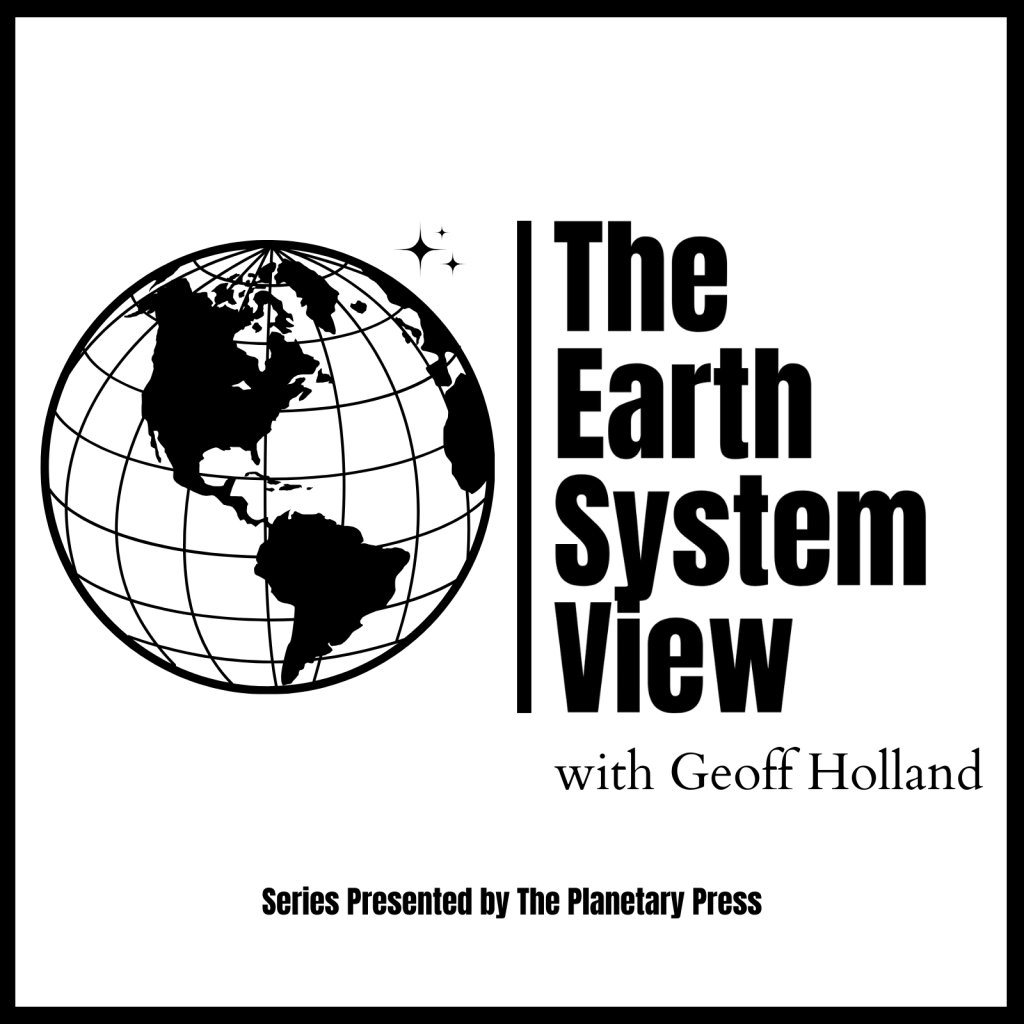
William Halal is an emeritus Professor at George Washington University. He was co-founder of the university’s Institute of Knowledge and Innovation. More recently, Halal created TechCast, a think-tank focused on Strategic Foresight for a Changing World. The TechCast team pools the knowledge of experts to forecast breakthroughs in technology, social trends, and wild cards to assist decision-makers in managing a changing world.
Halal’s best-selling book, Beyond Knowledge: How Technology Is Driving an Age of Consciousness, provides a ‘Big Picture’ view of the trends driving the new era that is emerging, an era that is unprecedented in human history, an era in which eight billion-plus humans attempt to cope with climate change, food insecurity, and a range of other existential threats, that together or individually, have the potential to destroy the health of our planet’s living biosphere.
The good news is that despite the dysfunction that defines humanity early in the 21st century, Bill Halal remains optimistic.
Geoff Holland: For decades, you have been focused on cultural trends and the impact of technology on human evolution. Your impressive presence on social media reflects your optimism that the dysfunction that currently defines humanity can lead to a future worthy of an intelligent apex species. Can you elaborate on that?
Bill Halal: I think it’s best to put it in a historic perspective. That’s what I’ve done in my book, Beyond Knowledge, by defining what I call the lifecycle of evolution (LCE). It amounts to a breakthrough in our understanding of where we are and where we’re going. The LCE plots the entire rise of civilization very accurately. Nobody has done this before. What it shows is that we’ve moved from agriculture to industry to services and then knowledge. The acceleration of technology into today’s Knowledge Age started in the year 2000, and now the Digital Revolution is driving the world beyond knowledge. That’s why the book is titled Beyond Knowledge. We’re now moving beyond the era defined by knowledge into an emerging era defined by consciousness.
There are two forms of consciousness, as defined by Descartes, which are still valid. The “objective” stuff is what computers are good at and what AI is automating. Objective consciousness includes facts, memory, decisions, knowledge— all the cognitive functions that are being automated by machines. The “subjective” stuff is different. That’s what humans are especially good at. We’re entering an age where subjective consciousness, or higher consciousness, dominates. Social media floods the airwaves with all the “post-factual nonsense” that dominates attention. You can find anything you want to believe today, so people end up thinking anything they wish.
That leaves people forced to make subjective choices about what to watch and what to believe. Subjective consciousness consists of values, emotions, and beliefs. Today’s challenge is to change consciousness in order to solve massive, historic problems.
In a nutshell, that’s what’s happening today. We need a global consciousness to master an interdependent world.

GH: You write ‘A global Mega-Crisis is here and now. And it requires a mature global order if we are to survive‘. A big change you are calling for is an earth scale shift from a profit-centric to a human-centric business model. Is that realistic, given the wealth and influence of the one percent that controls our Earth’s economic system and the politics that define the human culture?
BH: It really would be a dramatic change, but I think it’s happening. As a matter of fact, I was awarded an important Mitchell Prize 40 years ago for an academic paper titled ‘Beyond the Profit Motive’. It came with a $10,000 award. Today, that would be the equivalent of $30,000 to $40,000. So, it was a big deal. Now the ideas from that paper are becoming reality.
The Business Roundtable, a very highly regarded, globally influential business organization, announced a change in policy about three years ago in which making money was no longer the primary goal of business. That’s really remarkable. Earth-shaking. They now advocate a stakeholder model, where all of the social interests of business are equally important. I think that’s a remarkable thing. About 90 percent of corporations are actually doing something like that. They call it Environmental, Social, and Governance, or ESG.
They’ve gotten a lot of flak from those who see this trend as detracting from profit and the efficiency of the economy. But the ESG-committed CEOs are steadfast. Business executives see that the social problems are so enormous that they can’t ignore them. They recognize that if we’re going to survive as a human civilization— or to survive as corporations—they have to step up and address these planetary problems. And they’re trying to find a way to do it that is compatible with making money. That’s really the great challenge.
In my work, I’ve shown how they do that. They simply have to treat their social constituencies as resources rather than costs. They should form partnerships with their employees, customers, and local communities to solve strategic problems in ways that add value. That is the purpose of business… to create value. That would increase the benefits for everybody— for the social constituents as well as for shareholders. I think of this fully developed version of ESG as a “democratic enterprise.”
In fact, it would be better for shareholders because it would reduce risk. By forming a working relationship with their employees, their customers, and governments, they would reduce the uncertainty involved in business. So, there’d be less risk. And, in fact, you would need less government oversight because business then becomes a relatively self-regulating system. It’s a powerful idea whose time has come. It’s happening.
GH: How did you come to see this encouraging vision for the coming decades?
BH: My company, TechCast, pools the knowledge of business executives, scientists, engineers, futurists, and consultants to provide what I consider the best possible answers to tough questions. Our estimate is that the democratic enterprise model is likely to enter the mainstream later this decade, about 2027, plus or minus a year or two. That’s when it becomes understood as the main role of business. Culturally, it will make a massive difference because it would show that collaboration is productive. Of course, not everybody will do this, but the mainstream of business is likely to follow this course. I know it’s hard to believe, but it’s happening.
If businesses became quasi-democratic institutions, they would be setting a powerful example for collaboration because they would be cooperating with their stakeholders. Collaborative problem-solving is exactly what our world needs. That could shift the culture of modern societies toward the kind of cooperative global consciousness needed to govern an interdependent world.

GH: You’ve called social media a planetary layer of connection that knits all of humanity together into a living overlay of thought. In effect, it means we will soon become a collective brand of shared consciousness. Can you elaborate on that and talk about how it would transform the way we see ourselves and our place on Earth?
BH: That is an idea that was proposed 50 or 60 years ago by Pierre Teilhard de Chardin, a Jesuit anthropologist. He’s famous for illuminating what he called the Noosphere. It seemed like a lovely idea, but people thought of the Noosphere as something that might happen in the distant future. Yet it’s here now. That’s exactly what the internet and social media have created.
People used to think that the Noosphere would imply enlightenment. It’s turned out to be more complicated. We’re living with this overlay of thought, but it’s very fractured, polarized, and controversial. The challenge now is to shape that new kind of awareness, that global consciousness, into a common purpose. That’s the challenge now: to shape real change through a shared consciousness.
GH: Recently, a new idea, a planetary scale idea, called the Earth System Treaty, has entered the public consciousness. It is designed to serve the interests of all of humanity, regardless of gender, ethnicity, or national origin. Can an Earth System Treaty be the much needed beacon of common purpose that can bring all of our planet’s people together?
BH: Sure, that’s exactly what’s needed. There have been a number of these big ideas around for many years, actually. What is needed is a grassroots movement to make the Earth System Treaty or something like it into common knowledge and common purpose.
Today, we’re living in a state of crisis. If you ask ordinary people, most will express very grave concern about the future of life on the planet. We’re living in a state of crisis caused by climate change, polarization, the rise of autocrats, wars, and more. At TechCast, we estimate that this sense of crisis is likely to break sometime in the next few years. Then, a new collective global consciousness is likely to emerge around 2030 or so. Today’s current events are going to run their course. I think 2030 is a pretty good estimate for when we could see the emergence of something like a global consciousness. Your Earth System Treaty or something like it could accelerate the process.
Whatever form it takes, people need a transcendent idea to rally around that inspires shared cultural commitment.
GH: What role will young people and feminist women play in rallying people behind the kind of transformative common purpose we need?
BH: I think they are going to save us. The young people understand this; they’ve grown up with it. They have the most to lose. They intuitively understand today’s ominous reality. They are essentially Earth’s first global citizens. They know that human culture must change. Women, I think, tend to see the need for big change more than men. Women tend to have a different outlook. So, I think the role of women and young people will be crucial.

GH: What do the trends you see emerging tell us about the chances of a big idea like the Earth System Treaty becoming the cross-cultural movement humanity very much needs to achieve a worthy future for all of the planet?
BH: Our TechCast analysis is that a big idea— the Earth System Treaty or something like it— could emerge by about 2030. But there’s a lot of uncertainty about it, so our forecast sees a less than reassuring probability of about 55 percent. That reflects the fears and the doubts that people are feeling today. There’s great fear among ordinary people around the world.
Despite a lot of uncertainty, I think humanity is likely to make it. The world has been through horrible things, even worse than the current deep dysfunction— the fall of Rome, the bubonic plague, the Black Death that killed about half of the population of Europe, and the Cold War of nuclear weapons. We made it past all that because the forces of social evolution are beyond individuals. The cycle of evolution has a life of its own; it’s much bigger than any of us individually. That is what’s likely to carry civilization through this crisis.
There will be some pain, maybe a lot of pain. The climate problem, to name one of the huge risks at hand, is unprecedented and very severe. People are stepping up and providing solutions but in a halfhearted way. It’s what I call slouching into the need for climate remediation. The consequences will be bad, but ultimately, I see civilization surviving. I see humans choosing a way forward that is worthy of an intelligent species.
Stay tuned for more of The Earth System View series!

Hosted by author and veteran Stanford MAHB journalist Geoff Holland, The Earth System View explores the progressive idea of an Earth System Treaty as a solution to our planetary challenges.
Related Links:
www.BillHalal.com
www.TechCastProject.com
www.TechCastGlobal.com
https://business.gwu.edu/william-e-halal
www.BeyondKnowledge.org
https://youtu.be/0T_pAaRgna8







